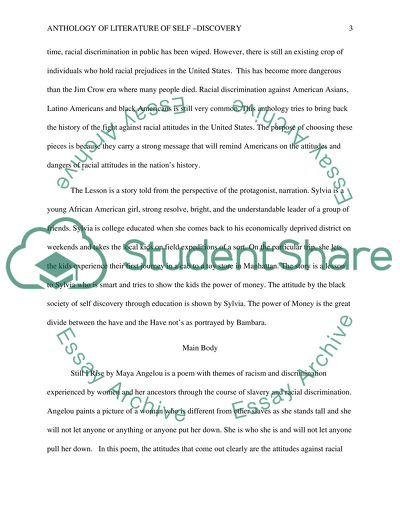Cite this document
(“Anthology of literature of Self Discovery: Racial Attitudes Term Paper”, n.d.)
Retrieved from https://studentshare.org/literature/1396949-anthology-of-literature-of-self-discovery-racial-attitudes
Retrieved from https://studentshare.org/literature/1396949-anthology-of-literature-of-self-discovery-racial-attitudes
(Anthology of Literature of Self Discovery: Racial Attitudes Term Paper)
https://studentshare.org/literature/1396949-anthology-of-literature-of-self-discovery-racial-attitudes.
https://studentshare.org/literature/1396949-anthology-of-literature-of-self-discovery-racial-attitudes.
“Anthology of Literature of Self Discovery: Racial Attitudes Term Paper”, n.d. https://studentshare.org/literature/1396949-anthology-of-literature-of-self-discovery-racial-attitudes.


